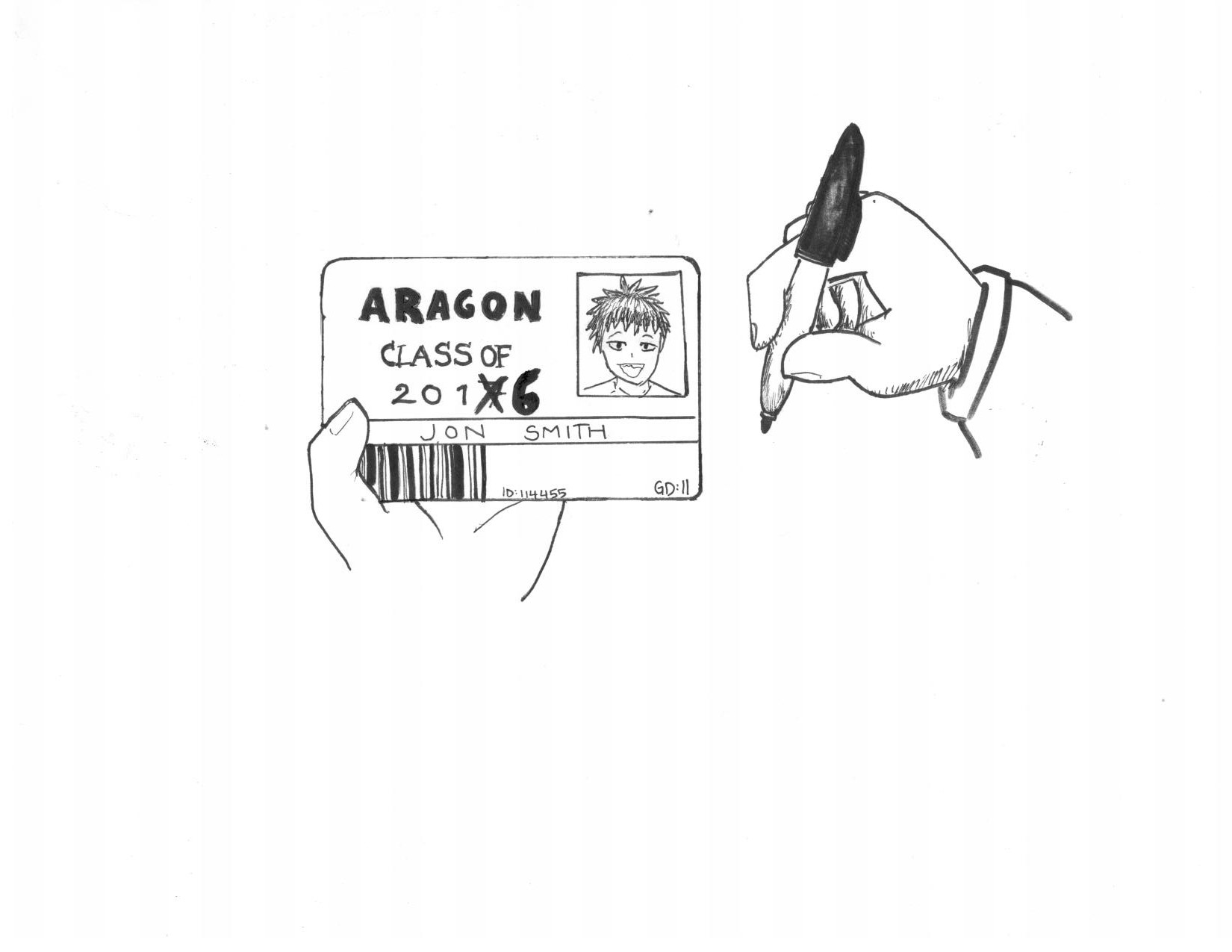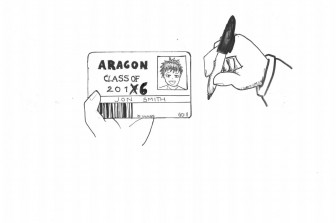
In the past two years, three Aragon students have entered college after completing just three years of high school.
“I think it’s kind of an odd situation. We’ve never had to face this before. These students who go are very prepared and mature … it’s just they’re so young,” says college counselor Laurie Tezak.
Choosing to skip senior year of high school is a relatively rare choice — although few Aragon students have made this choice, the recent interest is surprisingly higher than ever before.

Clearly, academics can be a large factor for making this decision. Danya Sandler, now a freshman at University of Southern California (USC) through its Resident Honors Program (RHP) explains, “I just felt like I didn’t really need another year of high school, because I felt like Aragon had already prepared me enough to go on and pursue my own academic endeavors, and that spending another year at home would just be wasting time when instead I could be learning at USC.”
Sometimes, the choice can be amounted to personal lifestyle and relationships. A freshman at Carnegie Mellon University (CMU), Ken Preiser says, “I had a lot of friends who were seniors at the time, like I just immersed myself in a group of people who were graduating and going to their various colleges next year. I don’t mean I don’t have any friends who are juniors, but it would have been really boring without [my older] friends.”
For such an unusual action, the application process can be surprisingly simple. Preiser says, “It was the exact same thing [as a college app]. I filled out the Common App and then there was this one section that asked ‘Are you a junior?’ and I said yes.”
Despite the easy application, administrative roadblocks can make the process harder. “The district had a very negative reaction, and treated me as a high school dropout who was ineligible to graduate,” Sandler says. “They kept telling me that I couldn’t get a diploma because I wasn’t fulfilling enough requirements.”
Aragon’s counseling office is much more open to the prospect. “I don’t think of them as high school dropouts,” Tezak explains. “I think it’s like ‘Oh my god! You didn’t complete high school and you’ve already been accepted by these really prestigious schools to go off to as a junior!’” Helping the students may be a little different that usual, but Tezak says, “I think if the counselors feel alright with it [and] they know that the student is going to be successful, we write the letters and make sure that all the paperwork is being taken care of.”
While leaving high school may be a little rocky, the arrival at college is akin to any usual freshman’s. Preiser says, “I take the exact same classes. The only difference is the number of AP credits I have.”
At some schools, there can even be perks. Sandler adds, “Academically, instead of having restrictions, we have more freedom because being in RHP increases the number of classes you can take.”
But age restrictions may be limiting. Preiser says, “In terms of being underage, one of the problems I’ve run into is parental permission. Normally, if you’re not 18, you can’t do anything in college.”
Age also affects students’ academics. Preiser says, “I am kind of noticing that people are academically ahead of me, and that is because I skipped an entire year of education. I feel like I genuinely don’t belong in this school sometimes, because everyone is just infinitely more intelligent than me. It’s hard.”
The difference in the academic environment may be one of the biggest adjustments faced by those who skip senior year, but it can at the same time be the best part of the decision. “I feel like I’m learning way more in my classes than I would in high school,” Preiser says. “[I feel like] I’m in the real world, and we do real things.
The experience isn’t as jarring for everyone, though. Sandler says, “It’s not noticeable; there’s no social exclusion. Most people have this culture shock about transitioning from high school to college, [but] I really don’t feel any different now than I did a year ago as a junior in high school as far as my lifestyle.”
After overcoming the issues to enter college after junior year, one can only hope that the decision turns out to be worth it. Sandler says, “It’s not really independence from parents that makes me savor this more. It’s that now, I’m responsible for what I do … I really like being more authoritative in my own life.”




